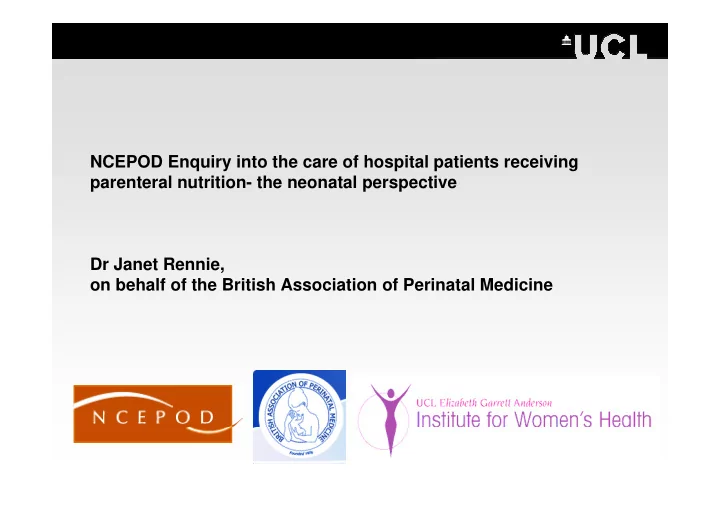

NCEPOD Enquiry into the care of hospital patients receiving parenteral nutrition- the neonatal perspective Dr Janet Rennie, on behalf of the British Association of Perinatal Medicine
Neonatal TPN - messages • Essential for the survival of the Essential for the survival of the smallest and sickest babies • Mostly <3 weeks “bridging the y g g gap” until full enteral feeds • Often delayed y • Sometimes inadequate • Metabolic complications frequent p q • Line complications common
Does it matter? • Low phosphate/sodium/glucose common in this group hence monitoring is vital and correction essential • Too little amino acid/lipid – important to monitor tolerance and consider the enteral input • What about the babies who should have got TPN but did not? Only 23% care represented “good practice” and 4.5% was “less than satisfactory”
What was missing? • Quality control of the manufacturing process • Information about enteral feeds Information about enteral feeds • Assessment of prescribing practice • Use of antifungal prophylaxis • Use of antifungal prophylaxis
Messages • National standards on PN constituents and prescribing • National standards re PN monitoring National standards re PN monitoring • National standards for “clean” manufacture • Better documentation and management of long lines • Better documentation and management of long lines • Advice on catheter use, and antifungal prophylaxis • Coupled with advice on enteral feed institution • Coupled with advice on enteral feed institution – a a nutritional package
Recommend
More recommend